Words by Emily Luan edits by Tom Newland, illustrations by Erin McGarry. The research was undertaken by David Fitzgerald, Alexander Scott, Nha Hoang, and Christopher Mason.
The Sustainable Development Goals were established by the United Nations in 2012 to address global development challenges. Sulitest, founded in 2013 at Kedge Business School in France, is dedicated to enhancing sustainability literacy. One of the tools it offers is the Awareness Test, designed to assess knowledge of the SDGs. The organisation focuses on creating tools for sustainability awareness in higher education. The University of Worcester has been using Sulitest for several years but is now looking to increase participation rates.
What can our project achieve?
The project’s objectives are pivotal to boosting participation in the Sulitest’s Awareness Test at the University of Worcester. This research aimed to capture the current student perspective on the Awareness Test, record the existing viewpoint of academic staff, and devise innovative strategies to engage students and staff with the Awareness Test.
How has this reached you?
Interviews:
Student sessions involved gathering opinions on marketing messages and understanding what would encourage them to take the Sulitest. The sessions revealed that students are interested in monetary incentives and a shorter test format.
Email communication:
We conducted a competition between two different types of emails to test their suitability for use in marketing activities. The purpose was to identify the most effective email format for promoting the Sulitest’s Awareness Test.
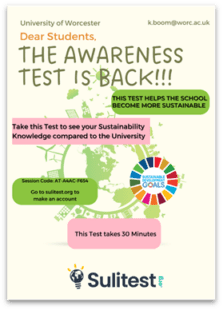
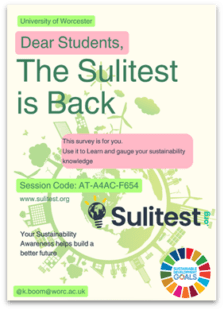
Survey highlights
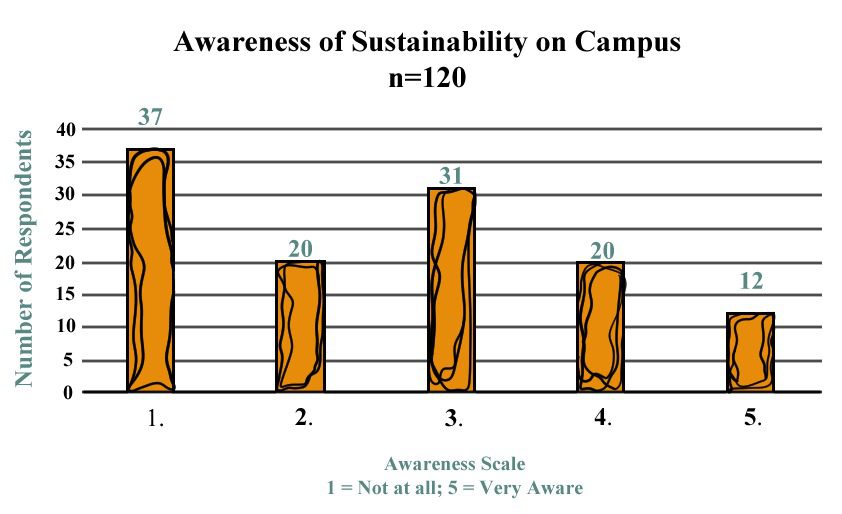
There needs to be more awareness among University of Worcester students regarding the Sulitest’s Awareness Test, particularly evident among those in Nursing and Sports/PE Teaching.
In focus group discussions, the researchers noted that students prefer clear and direct invitations and are interested in competitive incentives.
Academic staff expressed their willingness to integrate the test into their curriculum and seek guidance on implementing it into their teachings.
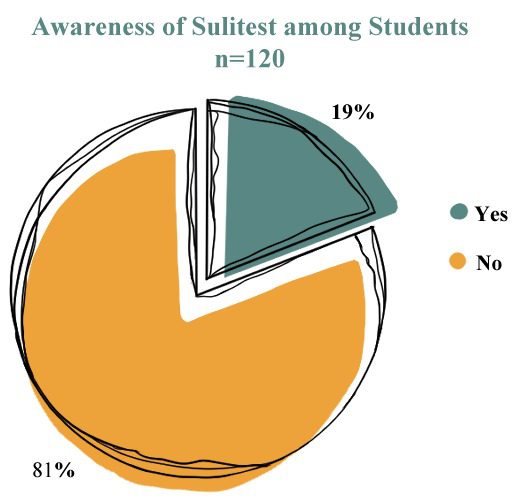
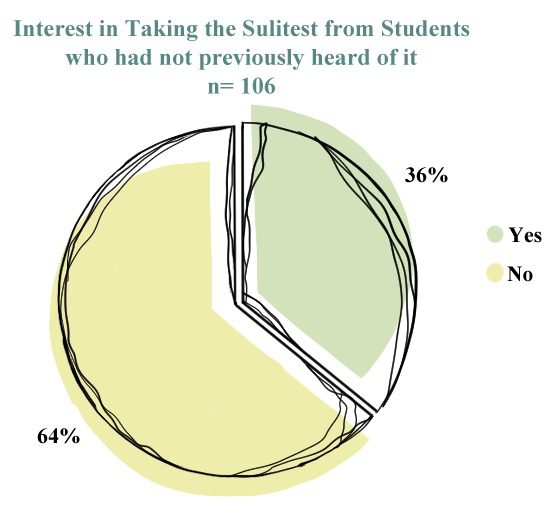
‘Awareness and Interest’
Recommendations for the Sulitest at University of Worcester
At the University of Worcester, we are committed to enhancing the language and design of the invitation email for the awareness test. Our goal is to ensure that the email effectively communicates the importance of the test to academic staff and provides them with the necessary resources and guidance for integrating the test into their courses.
To encourage student engagement, adding an element of competition that offers incentives for taking the awareness test, would enhance take-up, along with increasing the promotion of the test to ensure that students are aware of its importance.
To recognise and reward students for completing the test, an option could integrate the test completion into the existing Worcester Award infrastructure and create special awards for students who take the test multiple times, such as the Sustainability Scholar award.
Recommendations for Sulitest
Suggestions include shortening the length of the awareness test to 20 more concise questions, which should take about 15 minutes. Additionally, consider allowing test-takers to submit questions for review by a panel to ensure relevance and engagement.
What we see in the future of Sustainability at Worcester University
Addressing identified obstacles and leveraging insights from students and academic staff, the project’s recommendations can help promote greater participation in Sulitest’s Awareness Test. Through tailored strategies and collaboration between the University of Worcester and Sulitest, we cannot just show the value of sustainability literacy within the academic community. Still, we can also help shape the future of Sustainability at the University of Worcester.
Watch the student researchers present their research findings.